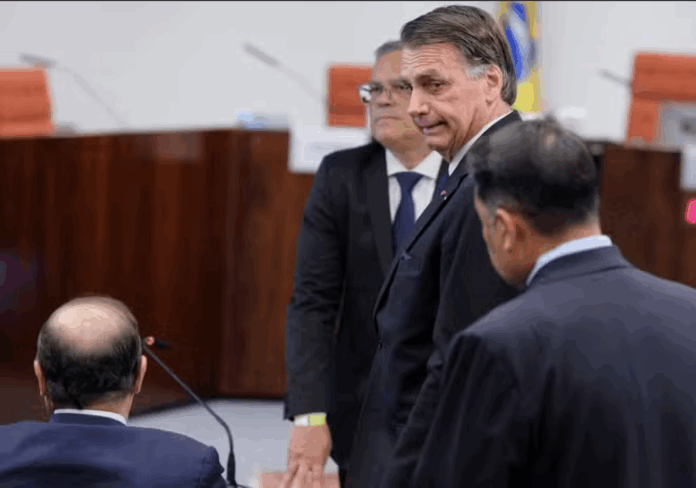Bolsonaro Threatened Prison, But Still Defiant in the Streets
When you see thousands clad in Brazil’s yellow and green, fists clenched on São Paulo’s iconic Paulista Avenue, you know the show is not over. Bolsonaro threatened prison, perhaps 40 years behind bars for what the Supreme Court calls an attempted coup, yet the former president stands there, arms outstretched, invoking God, freedom and ‘the people’. The official press may smirk at dwindling crowds, but the signal is unmistakable: the right-wing current is not dead, it is regrouping.
A Shrinking but Loyal Crowd: Symbolism Over Numbers
For any analyst still relying on raw headcounts, the story seems simple. From 185,000 in February to 45,000 in April, and now barely 12,400, the street fervour appears to be waning. Yet the Bolsonaro threatened prison narrative only deepens the bond with his base. Every new indictment, every leaked charge sheet becomes fresh proof, in the minds of his supporters, that Brazil’s leftist judiciary wants him buried alive, politically, if not physically.
From behind a blue tracksuit and pale yellow polo, Bolsonaro shouts the words that define this camp: “God, freedom and the people.” No ideological subtleties, just raw populist energy, the same cocktail that once carried him to the Planalto Palace.
Not Obsessed With Power, Just National Redemption?
In a line carefully crafted to look modest but aimed like a dagger, he declares: “I’m not obsessed with power. I’m in love with my homeland. I don’t need to be president. If I remain honorary president of my party, I can still do what you wish.”
This is no accidental humility. Stripped of eligibility until 2030 for railing against Brazil’s voting machines, electronic, yes, but untrusted by millions, Bolsonaro needs to keep the flame alive. The Bolsonaro threatened prison saga becomes a myth of martyrdom: an ex-army captain sacrificed for his crusade against the ‘deep state’ of unelected justices.
The Shadow Candidates: Plan B in the Wings
While the former president plays messiah-in-exile, his lieutenants jostle for position. Tarcisio de Freitas, São Paulo’s governor and a loyal former minister, stands beside him, showering praise, “the greatest leader in Brazilian history.” For the conservative movement, he is the plausible Plan B: new face, same machine.
In Brazil’s realpolitik, a jailed Bolsonaro becomes an eternal flag, his allies can run in 2026 under his blessing, claiming legitimacy through persecution. His son Carlos echoes the same script: “The message is: occupy the ground. This isn’t about a candidacy, yet.”
A Polarised Nation: One Justice for the Left, Another for the Right
In the alleys of Paulista, the mood is carnival and vendetta in equal measure. One protester, draped in a judge’s robe, mocks Supreme Court Justice Alexandre de Moraes as a “psychopath who ripped up the Constitution.” It’s crude, but it sticks: to Bolsonaro’s loyalists, Brazil lives under an unconstitutional regime run by unelected justices, an ‘exception state’ for the right, open arms for the left.
This refrain is hardly unique to Brazil. Marine Le Pen’s ineligibility for misused EU funds; Trump’s endless indictments. In this hemisphere, Bolsonaro wants his own chapter of victimhood: he is, in his words, no coup-plotter but a “political prisoner in waiting.”
What Comes Next?
One need not worship Bolsonaro to grasp the reality: the battle for Brazil’s right wing will be messy, personalist, and deeply anchored in the Bolsonaro threatened prison narrative. A prison cell could martyr him, but it might also fracture his base, São Paulo’s record store clerks, Sunday strollers on Paulista, the disillusioned middle class tired of the street theatre all have other worries.
Yet if history has taught anything, it is that populists wield their own trials as weapons. Bolsonaro knows this. He stands there, part statesman, part fugitive-in-waiting, daring the Supreme Court to make him a martyr, and maybe, just maybe, change Brazil’s destiny once again.



